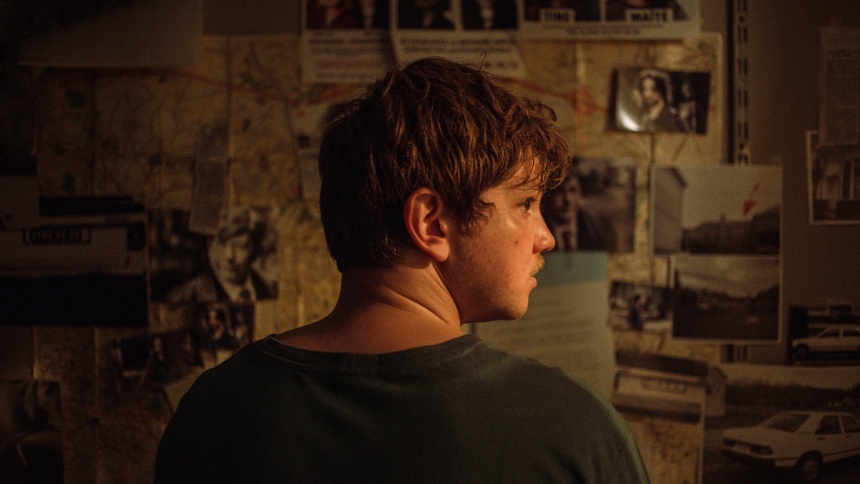Venice 2024 Review: MALDOROR Revisits Belgium's Darkest Crime Through Genre Lens
Fabrice du Welz's latest film revisits a notorious real-life crime through a tense psychological action thriller that intertwines vintage aesthetics and sanity-challenging obsession.

Belgian director and screenwriter Fabrice du Welz revisits a painful chapter in the country’s modern history in his new film, Maldoror, which is loosely based on the infamous Dutroux scandal.
In 1995, the kidnapping of two eight-year-old girls shocked Belgium. Marc Dutroux, a convicted sex offender, was a prime suspect from the outset, yet he evaded arrest for 14 months. By the time he was apprehended, four of his captives—including the two girls—had died.
The film opens with the disappearance of two young girls, then introduces Paul Chartier (Anthony Bajon), an impulsive young police recruit who struggles with authority. Although the film is based on actual events, du Welz situates the story within a broader context, portraying a cold war between Belgian law enforcement agencies. This institutional dysfunction creates the vacuum that allows the prime suspect to remain at large.
Chartier, in the midst of preparing for his wedding, is as shocked as the rest of the country by the kidnappings. His horror quickly morphs into obsession, leading his superior, Hinkel (Laurent Lucas), to involve him in an off-the-books surveillance operation, code-named Maldoror. The operation tracks Marcel Dedieu (Sergi López), a local sex offender and scrap dealer known to the police. As Chartier becomes more deeply entangled in the case, his fixation grows. However, the circumstantial evidence he uncovers is still insufficient to arrest Dedieu.
At this point, the film shifts from a procedural crime drama to a psychological thriller. Du Welz turns the focus inward, exploring Chartier’s increasing obsession and the possibility that Dedieu may be connected to powerful political figures. Chartier, walking a dangerous line, becomes a liability to his supervisor as his mental state unravels.
Du Welz, known for his exploration of dark themes and moral ambiguity in films such as Calvaire and Alleluia, once again delves into the disintegration of humanity within extreme psychological landscapes. While Maldoror contains elements of horror, particularly as the true crime narrative shifts into psychological territory, it also marks du Welz’s move toward more mainstream cinema.
The director’s influences are clear, particularly David Fincher’s thrillers, most notably Zodiac, with its mix of procedural elements and moral undertones. Du Welz’s frequent collaborator, cinematographer Manu Dacosse, employs a muted color palette of browns and grays to depict the decaying industrial city of Charleroi. The oppressive setting, paired with claustrophobic camera work, mirrors Chartier’s growing sense of entrapment—both physically and psychologically.
Maldoror has a distinctly vintage feel, drawing on the aesthetics of 1970s French noir, with VHS visuals bookending the film. The narrative itself feels like it belongs to an earlier era, with Chartier embodying the classic trope of the self-destructive investigator. His obsession with the case pushes him toward reckless behavior, though at times, his portrayal verges on caricature.
One of the film’s challenges lies in its crowded cast of characters. Alongside the central figures of Chartier, the victims, and the culprits, du Welz introduces a host of supporting characters from Chartier’s personal and professional life, including his in-laws and fellow officers.
This sprawling ensemble gives the film the feel of a narrative originally intended for episodic format, with multiple subplots suggesting a scope that exceeds the feature-length format. At 155 minutes, the film sometimes struggles to balance its various threads with multiple digressions from the central plot that extends the cat-and-mouse chase as du Welz takes many liberties in employing creative license.
Maldoror explores the dark side of humanity and politics with the mix of abuse and system corruption and the deep state narrative against the true crime blueprint. Rather than adopting the modern flair crime procedurals, du Welz embraces a vintage aesthetics and storytelling conventions.
The film’s dramatic twist—a near-rescue in a cellar—intensifies Chartier’s guilt, further fueling his self-destructive behavior. By filtering a psychological and political drama through genre lenses, du Welz creates a film that is more a genre fare spectacle than true crime reconstruction, reframed for mainstream audiences.
Maldoror
Director(s)
- Fabrice du Welz
Writer(s)
- Fabrice du Welz
- Domenico La Porta
Cast
- Anthony Bajon
- Alba Gaïa Bellugi
- Alexis Manenti







